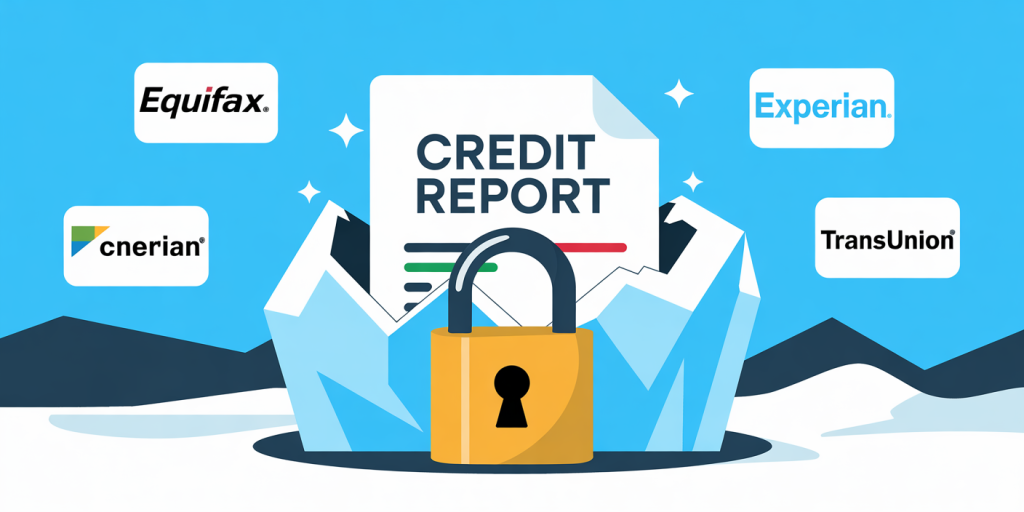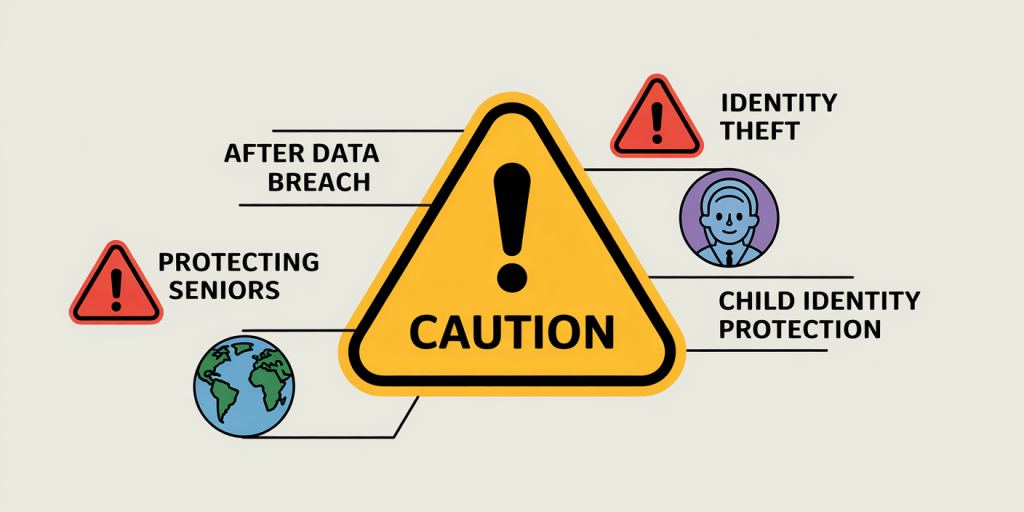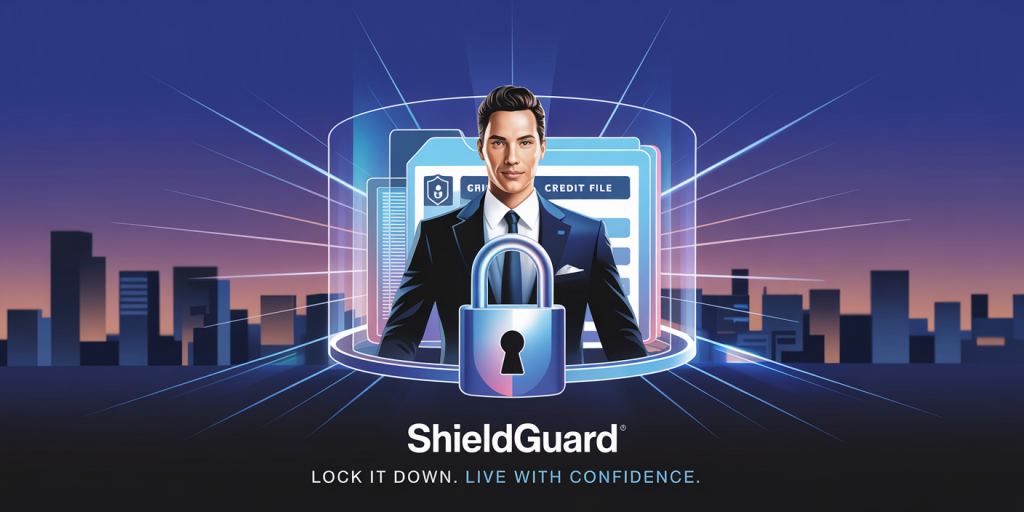What Is a Credit Freeze and When Should You Use One?
Anúncios
In an age where identity theft and financial fraud are increasingly common, protecting your personal information has never been more important. From phishing scams to data breaches, it takes only one slip for someone to access your credit and ruin your financial standing. That’s where a credit freeze comes in.
A credit freeze—also known as a security freeze—is one of the most powerful tools available for preventing unauthorized access to your credit report. It’s simple to implement, free to use, and highly effective. But many people still don’t fully understand what it does or when to use it.
In this article, we’ll break down everything you need to know about credit freezes: how they work, when to use them, how to lift or remove one, and how they differ from other protections like fraud alerts.
Anúncios
What Is a Credit Freeze?

A credit freeze is a feature offered by the three major credit bureaus—Equifax, Experian, and TransUnion—that restricts access to your credit report. When a freeze is in place, creditors cannot view your credit file to approve new credit applications.
Anúncios
This means that if a criminal tries to open a new credit card, auto loan, or mortgage in your name, the application will typically be denied—because the lender can’t pull your credit report.
A credit freeze:
-
Prevents new credit from being opened in your name
-
Does not affect your credit score
-
Can be temporarily lifted or permanently removed by you
-
Is free to place and remove under U.S. federal law
What a Credit Freeze Does Not Do
While powerful, a credit freeze is not a cure-all for financial security. It will not:
-
Prevent access to your existing credit accounts
-
Stop fraudulent charges on current cards or loans
-
Protect against identity theft beyond credit usage (e.g., tax fraud or employment scams)
-
Remove inaccurate or fraudulent data already on your report
This is why a credit freeze should be part of a broader financial security strategy, not your only line of defense.
How to Freeze Your Credit
Freezing your credit is a simple process that you can complete online, by phone, or via mail with each of the three major bureaus. You’ll need to freeze your report at all three to ensure full protection.
Here’s how:
🟦 Equifax
Website: www.equifax.com/personal/credit-report-services/
Phone: 1-800-349-9960
🟪 Experian
Website: www.experian.com/freeze/center.html
Phone: 1‑888‑397‑3742
🟥 TransUnion
Website: www.transunion.com/credit-freeze
Phone: 1‑888‑909‑8872
You’ll need to provide:
-
Full name
-
Social Security number
-
Date of birth
-
Current and previous addresses
-
A copy of a government-issued ID
-
A utility bill or bank statement for address verification
Once set up, you’ll receive a PIN or passcode to lift or remove the freeze when needed.
How to Temporarily Lift or Remove a Credit Freeze
There may come a time when you need to unfreeze your credit—such as when applying for a loan, renting an apartment, or setting up new utilities.
You have two main options:
-
Lift the freeze temporarily (for a specific time period)
-
Remove the freeze entirely (permanently)
Both can be done using the PIN or credentials provided by each bureau. Most allow you to schedule a temporary lift in advance and specify which bureau(s) a lender should check.
Most lifts go into effect within minutes if done online or by phone.
When Should You Use a Credit Freeze?

A credit freeze is especially helpful in the following scenarios:
1. After a Data Breach
If your information was exposed in a data breach (like the Equifax breach of 2017), freezing your credit is a smart preventive measure. Even if your data isn’t actively being used, it can sit on the dark web waiting to be sold.
2. If You’re a Victim of Identity Theft
Once your identity has been compromised, taking immediate action to freeze your credit can prevent further damage. Pair it with a fraud alert and a report to the Federal Trade Commission (FTC) at IdentityTheft.gov.
3. When You Want a “Lock It Down” Strategy
If you’re not planning to apply for new credit anytime soon, freezing your credit adds a layer of security without impacting your daily financial activities. You can still use your current cards and loans as usual.
4. For Children and Seniors
Children and older adults are often targets of identity fraud. You can (and should) freeze your child’s credit as soon as they receive a Social Security number. This prevents someone from fraudulently opening accounts in their name.
Pros and Cons of Freezing Your Credit
✅ Pros:
-
Free to use
-
Blocks unauthorized credit access
-
No impact on credit score
-
Easy to lift or remove
-
Strong protection against new account fraud
❌ Cons:
-
Must freeze/unfreeze with all three bureaus individually
-
Can be inconvenient if applying for credit frequently
-
Doesn’t protect against other types of fraud (e.g., medical or employment fraud)
Credit Freeze vs. Fraud Alert: What’s the Difference?
While both tools aim to protect you from identity theft, they work differently.
| Feature | Credit Freeze | Fraud Alert |
|---|---|---|
| Access to Credit Reports | Completely restricted | Allowed with identity verification |
| Who Can Request | You | You or an authorized representative |
| Cost | Free | Free |
| Duration | Until removed by you | 1 year (renewable) or 7 years (extended) |
| Best For | Blocking all new credit access | Warning lenders of potential fraud |
You can also place both for stronger protection.
What to Do Before Freezing Your Credit
Before you initiate a credit freeze, take these preparatory steps:
-
Check your credit reports at AnnualCreditReport.com
-
Monitor your financial accounts for suspicious activity
-
Set up fraud alerts on your bank and credit card apps
-
Review all current credit and loan accounts
-
Make sure your passwords and security questions are strong and unique
Does Freezing Your Credit Affect Your Score?
No. Freezing your credit has zero impact on your credit score. It also doesn’t prevent you from:
-
Applying for jobs
-
Renting a home
-
Using current credit cards
-
Making payments
However, if you apply for new credit, you’ll need to temporarily lift the freeze for the application to be processed.
What About Credit Lock Services?
Some bureaus offer credit lock tools through their apps, which allow you to “lock” and “unlock” your credit with one click. While convenient, they’re often part of paid subscriptions, unlike a legally mandated free freeze.
If you prefer simplicity and are okay with the extra cost, credit locks may be worth considering—but credit freezes remain the strongest free option under law.
Final Thoughts: Lock It Down, Live with Confidence

In a world of constant digital exposure, taking control of your credit is no longer optional—it’s essential. A credit freeze gives you peace of mind knowing that even if your data is stolen, your credit can’t be abused.
It’s free. It’s easy. And it works.
So whether you’re protecting yourself, your children, or an aging parent, a credit freeze is one of the smartest financial safety nets you can put in place today.
Post Comment